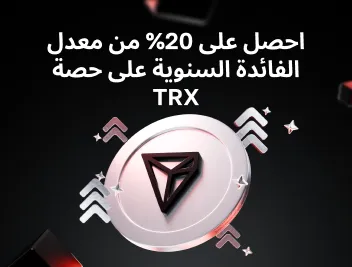
التنقل في اللوائح: ما تحتاج إلى معرفته حول قوانين العملات المشفرة
جدول المحتويات
يتطور عالم العملات المشفرة يومًا بعد يوم، وتتغير أيضًا اللوائح والقوانين الجديدة، مما يؤثر على كيفية قيام الأشخاص بشراء وبيع وتداول العملات المشفرة. في مقال اليوم، سنتحدث عن أحدث القوانين المتعلقة بالعملات المشفرة حول العالم.
ما هي القواعد التنظيمية المطلوبة في مجال العملات المشفرة؟
العملات المشفرة والتنظيم يتغيران ويتطوران بسرعة. في عام 2009، كانت لوائح العملة المشفرة غير موجودة تقريبًا. ومع ذلك، في السنوات القليلة الماضية، وبفضل القبول المتزايد للعملات المشفرة وزيادة شعبيتها، أصبحت العملات المشفرة أكثر تنظيمًا. فيما يلي بعض النقاط التي توضح سبب حاجتنا إلى تنظيم العملة المشفرة:
-
مكافحة غسل الأموال وتمويل الإرهاب: السبب الأول لتنظيم العملة المشفرة هو مكافحة الإجرام والإرهاب. تجعل هذه القواعد من الضروري لبورصات العملات المشفرة وخدمات المحفظة أن يكون لديها طرق للعثور على محاولات استخدام الأموال الرقمية لأغراض غير قانونية وإيقافها والإبلاغ عنها.
-
حماية المستهلك: يضمن تنظيم العملات المشفرة أن الأشخاص في مأمن من عمليات الاحتيال والخداع والحيل غير النزيهة. وهذا يعني أنه يجب إخبارهم بمخاطر وضع الأموال في العملات الرقمية وعمليات الطرح الأولي للعملات الرقمية.
-
الامتثال الضريبي: وضع تنظيم دقيق للأصول المشفرة لكيفية مساعدة الأموال الرقمية في ضمان قيام الجميع بدفع ضرائبهم بشكل صحيح. إذا كنت تريد معرفة قاعدة السفر المشفرة: التنقل بين الامتثال وتأثيره على المعاملات المزيد عن ضرائب العملات المشفرة، فننصحك بقراءة هذه المقالة:.
-
التعاون عبر الحدود: تعمل البلدان معًا على تحسين تنظيم العملات المشفرة حول العالم لإدارة سوق العملات الرقمية في جميع أنحاء العالم وحل المشكلات مثل تجنب القواعد القانونية من خلال التنقل بين البلدان.
من هو الجهة المنظمة للعملات المشفرة؟
يشير منظمو العملات المشفرة إلى الوكالات أو السلطات الحكومية التي تضع قواعد لسوق العملات المشفرة. تقرر هذه المنظمات كيفية استخدام العملات المشفرة وتداولها وفرض الضرائب عليها لحماية المستخدمين ومنع الأنشطة غير القانونية وضمان الضرائب العادلة، وتقوم بإنشاء لوائح جديدة للعملات المشفرة. لدى الدول المختلفة هيئات تنظيمية مختلفة لهذا الغرض:
-
الاتحاد الأوروبي: تساعد هيئة الأوراق المالية والأسواق الأوروبية (ESMA) في الإشراف على الأسواق المالية في الاتحاد الأوروبي، والتي تشمل بعض أجزاء العملات المشفرة. أيضًا، قد يكون لدى الدول داخل الاتحاد الأوروبي قواعدها ومجموعاتها الخاصة للتنظيم.
-
المملكة المتحدة: تتولى هيئة السلوك المالي (FCA) رعاية قطاع الخدمات المالية في المملكة المتحدة، بما في ذلك الأمور المتعلقة بالعملات المشفرة.
-
اليابان: تتولى وكالة الخدمات المالية (FSA) تنظيم الخدمات المالية، والتي تشمل تداول العملات المشفرة.
-
كوريا الجنوبية: تتولى لجنة الخدمات المالية (FSC) مسؤولية تنظيم الأسواق المالية في كوريا الجنوبية، وتغطي الأنشطة المتعلقة بالعملات المشفرة.
لوائح العملة المشفرة حول العالم
يتغير تنظيم العملات المشفرة العالمي كثيرًا من بلد إلى آخر اعتمادًا على الطريقة التي تنظر بها هذه البلدان إلى العملات المشفرة. دعونا نلقي نظرة على كيفية تحكم بعض البلدان والمناطق في العملات المشفرة:
-
الولايات المتحدة: لدى الولايات المتحدة وكالات متعددة، مثل هيئة الأوراق المالية والبورصة (SEC) ومصلحة الضرائب (IRS)، التي تشرف على العملات المشفرة، مع التركيز على حماية المستثمرين، ومكافحة الأنشطة غير القانونية، وضمان دفع الضرائب. تحتاج عمليات تبادل العملات المشفرة إلى اتباع قواعد صارمة.
-
روسيا: تعتبر روسيا العملات المشفرة بمثابة ملكية لكنها لا تسمح باستخدامها لشراء الأشياء. هناك قانون للأصول الرقمية، وروسيا تفكر في الروبل الرقمي والمزيد من قواعد العملات المشفرة.
-
الصين: تحظر الصين تداول العملات المشفرة ومعاملاتها للسيطرة على المخاطر المالية ولكنها تدعم تقنية blockchain ولديها عملتها الرقمية الخاصة، اليوان الرقمي، التي تسيطر عليها الحكومة.
-
نيجيريا: في عام 2024، غيرت نيجيريا طريقة تعاملها مع قواعد العملات المشفرة. أوقف البنك المركزي النيجيري (CBN) حظره السابق على معاملات العملات المشفرة، والذي بدأ في فبراير 2021، لأنه كان قلقًا بشأن غسيل الأموال وتمويل الإرهاب. تم اتخاذ هذا القرار الجديد بسبب الاتجاهات العالمية التي أظهرت أنه من المهم وضع قواعد للشركات التي تتعامل مع الأصول الافتراضية، مثل العملات المشفرة والأصول المشفرة.

في أي عام سيتم تنظيم العملات المشفرة بشكل كامل؟
إنه أحد الأسئلة الأكثر طرحًا، خاصة بالنسبة لمستخدمي العملات المشفرة المبتدئين: هل يتم تنظيم العملات المشفرة بشكل كامل؟ الإجابة على هذا السؤال بسيطة للغاية.
إذا ألقينا نظرة على تاريخ تنظيم العملات المشفرة، فسنرى أنها لم تتوقف عن التطور عامًا بعد عام، وسيشهد عام 2024، على سبيل المثال، تطبيق بعض لوائح 2023 وستجلب أيضًا مجموعة خاصة بها من اللوائح الجديدة . يشير هذا التطور المستمر في اللوائح إلى أن صناعة العملات المشفرة لم يتم تنظيمها بالكامل بعد وستستمر في التكيف مع الظروف المتغيرة في المستقبل.
استراتيجيات تنظيم العملات المشفرة
يتطلب التحكم في العملات المشفرة خطة معقدة نظرًا لطبيعتها اللامركزية وانتشارها العالمي والمشهد سريع التطور لتقنية blockchain. فيما يلي بعض الطرق التي تم استخدامها لتنظيم العملات المشفرة:
-
ترخيص البورصات وتسجيلها: في العديد من الأماكن، تحتاج بورصات العملات المشفرة إلى الحصول على ترخيص والاشتراك في مجموعات تتأكد من اتباع القواعد المالية. وذلك للتأكد من أنهم يعملون بشكل علني، ويحاربون غسل الأموال وتمويل الإرهاب، ويلتزمون بقواعد محددة حول كيفية عملهم.
-
سياسات KYC وAML: تنص القواعد على أنه يجب على شركات العملات المشفرة أن يكون لديها إجراءات لوقف الأنشطة غير القانونية. يتعين عليهم التحقق من هوية عملائهم، والاحتراس من أي تحركات مالية غريبة، وإبلاغ السلطات إذا رأوا أي شيء مريب.
-
الضرائب: لدى البلدان المختلفة قواعد بشأن كيفية فرض الضرائب على العملات المشفرة وتنظيم عملة البيتكوين، حيث تنص على أن العملات المشفرة تعتبر أشياء تمتلكها أو أصولًا أو في بعض الأحيان أموالًا. ويقدمون النصائح حول كيفية التعامل مع الضرائب على الأرباح والدخل وضريبة المبيعات عند الحاجة إليها.
-
حماية المستهلك: يتم وضع القواعد لحماية الأشخاص من التعرض للخداع والاحتيال والأعمال غير النزيهة في عالم العملات المشفرة. تتأكد هذه القواعد من أن الشركات واضحة بشأن المخاطر، وتستخدم طرقًا آمنة للاحتفاظ بالأموال، ولا تقدم إعلانات مضللة.
-
البيئات التجريبية التنظيمية: تحتوي بعض الأماكن على برامج خاصة تسمى البيئات التجريبية التنظيمية. يتيح ذلك لشركات التكنولوجيا والعملات المشفرة الجديدة تجربة أفكارها بأمان تحت العين الساهرة. فهو يساعد المسؤولين على التعرف على التكنولوجيا الجديدة والتفكير في قواعد عادلة دون إيقاف نمو الأفكار الجديدة.
نصائح عملية حول لوائح التشفير
إذا كنت تريد البدء في استخدام العملات المشفرة لأغراض شخصية أو تجارية، فيجب عليك معرفة كيفية استخدام اللوائح وفهمها. وإليك بعض النصائح التي ستساعدك في ذلك:
-
فهم التزاماتك: يأتي دورك في مجال العملات المشفرة (مثل الاستثمار أو إدارة البورصة) بقواعد محددة. من الضروري معرفة مسؤولياتك، مثل إعداد التقارير أو الحصول على التراخيص أو ضمان سلامة العملاء، وتحتاج أيضًا إلى فهم إرشادات تنظيم Bitcoin.
-
اطلب المشورة القانونية: قوانين التشفير معقدة. يمكن أن تساعدك استشارة المحامين الذين يفهمون العملات المشفرة على اتباع الإجراءات الصحيحة والبقاء متوافقًا.
-
الامتثال الدولي: إذا كنت تعمل في بلدان متعددة، فيجب عليك اتباع قواعد التشفير الخاصة بكل بلد، والتي يمكن أن تختلف بشكل كبير. ويشمل ذلك الالتزام بالعقوبات الدولية وفهم القوانين المحلية.
نأمل أن تستمتع بهذا المقال الذي كان يدور حول تنظيم العملة المشفرة. يرجى ترك تعليق أدناه وإخبارنا برأيك حول تأثير لوائح التشفير.
تبسيط رحلة التشفير الخاصة بك
هل تريد تخزين العملات المشفرة أو إرسالها أو قبولها أو مشاركتها أو تداولها؟ مع Cryptomus، كل شيء ممكن - قم بالتسجيل وإدارة أموال العملة المشفرة الخاصة بك باستخدام أدواتنا المفيدة.
البدء









